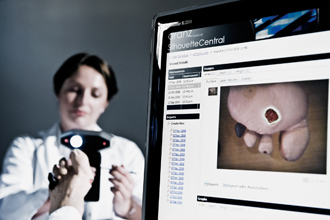The New Zealand government has launched a Health White Paper outlining New Zealand’s successes in primary healthcare and integrating care delivery across the whole continuum of care. The White Paper provides evidence that New Zealand’s attainment of objectively measurable clinical excellence in its healthcare system arises from new IT-enabled approaches to the delivery of healthcare, which are seen as models for larger European countries.
Europe an healthcare systems are struggling to prepare for the future. As budgetary pressures take hold, finding efficiencies has become central to the preservation of high quality care. This, combined with ageing populations suffering from chronic conditions and less people providing tax revenues on which healthcare funding depends,requires urgent and positive action.
an healthcare systems are struggling to prepare for the future. As budgetary pressures take hold, finding efficiencies has become central to the preservation of high quality care. This, combined with ageing populations suffering from chronic conditions and less people providing tax revenues on which healthcare funding depends,requires urgent and positive action.
 The New Zealand government is launching a Health White Paper outlining New Zealand’s successes in primary healthcare and integrating care delivery across the whole continuum of care. Although many countries are striving to contain costs while improving the quality of healthcare, New Zealand has already achieved major success.Compared with most developed countries, New Zealand’s use of IT in healthcare is among the highest in the world, especially by primary care providers,and its ubiquity is providing a platform for significant breakthroughs. Evidence is growing that, if left unchanged. Europe’s current healthcare systems will become unsustainable within the next 15 years. Furthermore, the World Health Organisation, in its 2010. Health report suggested: At a time when money is tight, before looking for places to cut spending on health care, look first for opportunities to improve efficiency.
The New Zealand government is launching a Health White Paper outlining New Zealand’s successes in primary healthcare and integrating care delivery across the whole continuum of care. Although many countries are striving to contain costs while improving the quality of healthcare, New Zealand has already achieved major success.Compared with most developed countries, New Zealand’s use of IT in healthcare is among the highest in the world, especially by primary care providers,and its ubiquity is providing a platform for significant breakthroughs. Evidence is growing that, if left unchanged. Europe’s current healthcare systems will become unsustainable within the next 15 years. Furthermore, the World Health Organisation, in its 2010. Health report suggested: At a time when money is tight, before looking for places to cut spending on health care, look first for opportunities to improve efficiency.
DRIVERS OF INNOVATION
Across the board, European countries are improving health IT infrastructure to drive efficiencies within both public and private hospitals. Every European nation has a stake in protecting and improving the health of its citizens, and many are seeking and finding ways to leverage IT for this purpose, despite the complexity and scale of the various healthcare systems.
New Zealand, a relatively small and young country, has shown that it is well placed to offer expertise. With a small, geographically dispersed population and remote locations, New Zealand has strong incentives to develop and implement new approaches to healthcare delivery using innovative health technology. Another driver for innovation is the relative lack of funding. The average spend on health per head of population in New Zealand is about 30% less than in Germany and France and 16% less than in the UK. Rather than major investment programmes, the country’s progress has been based on a number of principles:
• The vital role of clinical leadership
• The development of standards
• Enabling choices of approach at local and regional levels from a limited menu which is compliant with nationally defined architectures
• The development of a clinically endorsed National IT Plan
• Encouragement of innovation at a local level, but with emphasis on evaluation and dissemination of successful pilots
This focus on innovation has resulted in New Zealand’s health sector being internationally recognised as a provider of high quality and cost effective services. Of all the countries striving to contain costs while improving the quality of healthcare, New Zealand can justifiably claim success in primary healthcare and in integrating care delivery across the whole continuum of care.
FACING RISING COSTS
With healthcare costs shown to be rising at approximately 2% of GDP per annum across major economies, the integration of care delivery across care settings is one of the mechanisms that has been proven to mitigate this trend.Together, innovators, entrepreneurs and clinicians on the frontline have encouraged rapid growth in New Zealand’s health technology sector, proving that innovative technology is enabling clinical excellence. Internationally, the level of collaboration found within New Zealand’s health sector is rare. These collaborations have changed clinical practice and other aspects of the health system for the better. They result partly from close connections between the country’s universities and other research institutions, but also from strong links to industry and international markets. The sector is focused on market opportunities and on building international partnerships.
New Zealand companies already export knowledge, products and services related to healthcare to Europe. The white paper suggests that stepping up this practice could benefit other nations, in a number of ways. The ability to transfer initiatives from New Zealand to larger countries, including those in Europe, is a common talking point internationally.
TECHNOLOGY AS AN ENABLER
New Zealand was among the first countries in the world to establish an electronic Population Health Index, a system that features a comprehensive database containing nearly 20 years of health encounters and which is now supplemented by a Health Practitioner Index. Beyond informing public policy decisions, these indices have enabled development of rich data sets, which in turn have sparked the growth of internationally respected health research capital. IT that supports the sharing of clinical medical information is proving particularly valuable.
An increasing proportion of clinicians in New Zealand are using the Internet to communicate with patients and there is a rapid uptake across the sector of shared records . New Zealand has achieved these advances through far-sighted strategies, including the long term investment over more than 20 years of governance. Being a small country with a single tier of government simplifies streamlining, but New Zealand has confronted many territorial and proprietary barriers that stand as obstacles to developing a truly integrated care service.
The approach has required health system stakeholders to:
• Involve clinical leadership in strategy development
• Develop a vision and a strategy for socializing it throughout the sector
• Gain community buy-in and support, as far as possible
• Put in place key infrastructural elements: technologies, consent frameworks, architectures, integration approaches, process changes etc.
• Create partner-style engagements between the healthcare sector and the supplier and research communities
• Initiate a series of trials and evaluate them, with the clear commitment to move from trial to large-scale deployments
• Align the reward frameworks with the new structure processes (still very much a work in progress)
NEW ZEALAND TECHNOLOGY: GLOBAL DEPLOYMENT
World-leading New Zealand e-health company Orion Health’s clinical integration solutions are now used by more than 300,000 clinicians worldwide to manage and deliver better patient care to around 30 million patients in 30 countries. Orion Health’s software helps to reduce errors and omissions and streamline information flows within facilities, between organizations, and across regions.
Since its establishment in New Zealand in 1993, and the design and implementation of the world’s first national Electronic Health Identifier (EHI) for the New Zealand Ministry of Health, Orion Health has worked to advance the development of integrated health information systems, with solutions that strategically enhance existing technologies. Among its European projects, Orion Health implemented regional Electronic Health Records (EHR) in the Balearic Region of Eastern Spain to provide clinicians with widespread access to patient medical records, resulting in improved quality of care and provider efficiency and reduced costs for the regional health organization. In the UK, although good progress is being made in Scotland and Wales, with a high penetration of EHR systems in primary practice, England has experienced mixed progress with its ambitious plan for e-health. New Zealand company Simpl Group is supporting developments in Wales and England.
The Welsh Clinical Portal is benefitting by Simpl creating a software testing framework for NHS Wales Informatics Service. Simpl is also creating and delivering a Single Community Care Record (SCCR) system for NHS health and social care provider, Torbay Care Trust, with the aim of providing 10 to 20 percent efficiency gains. The SCCR addresses a problem that government agencies around the world are trying to solve, with the drive to enable healthcare and related services to be effectively and efficiently coordinated across multiple providers and to foster collaboration in ways that improve health outcomes.With a trend for healthcare to be increasingly delivered at home, New Zealand is using its capability in health informatics to inform and empower patients. By 2014, all New Zealanders will have a core set of personal health information available electronically to them and their treatment providers, regardless of where they are accessing health services.
New Zealand specialist design and build electronics company, Chiptech, is a leading manufacturer of medical (social) alarms – enabling people to remain independent, safe and healthy in their homes. Chiptech’s latest Smartware product, the Personal Response Unit (PRU) is an affordable social alarm that is also able to provide telecare and telehealth functions. Some of the many options include medication management, caregiver monitoring, activity monitoring, along with the ability to collect and forward health data.
An example of sector collaboration is Precept Health, a New Zealand software development company specializing in the development of medical software systems for intensive care units (ICU), operating rooms, emergency departments and acute care units. Precept Health’s flagship product, ICU Care, incorporates unit administration, point of care and automatic medical device integration functions, which empower clinicians to improve patient outcomes and provide ward managers with tools to deliver administrative cost savings.It is not unusual for a New Zealand clinician to work with an engineer to develop a new health IT solution. New Zealand company Safer Sleep’s solutions were pioneered in New Zealand by Professor Alan Merry, Chair of the Department of Anaesthesiology at the University of Auckland. His research team has been recognized in the academic journal Anaesthesia,as ‘world leaders in the analysis of medication errors and in devising methods to try and decrease their occurrence.’
 The SAFERsleep System provides an anesthesia safety and electronic record solution for hospitals and ambulatory surgical facilities. Combining barcode technology, touchscreen controls, and workroom organizational tools, the system has been shown to reduce the incidence of bolus to bolus drug error by more than 35%. The system is installed in two UK NHS Trusts, Papworth and Wrexham, and successful evaluation trials have taken place in a further four major Trusts. Another example of a New Zealand company delivering innovative, award-winning patient support programmes driven by ground-breaking research is Atlantis Healthcare, which has achieved global success with its drug adherence programmes. It has implemented more than 80 programmes globally on behalf of pharmaceutical companies and government health services, helping more than 750,000 patients worldwide. With one of the world’s largest health psychology teams, Atlantis regularly undertakes innovative research to develop interventions to improve patient adherence. (Proper medication adherence will save governments billions of dollars in healthcare costs.) A recent research study conducted by Atlantis Healthcare’s clinical team, published in the British Journal of Health Psychology, shows that text message (SMS) interventions targeting people’s beliefs significantly improve adherence to Asthma medication and have the potential to improve adherence and disease management across a number of illnesses. The group of patients who were allocated to the 18 week SMS intervention achieved a 40% lift over baseline in adherence to preventative therapy. Adherence gains were still evident six months after the intervention had ceased, proving that illness perceptions and medicines beliefs were changed as a result of the intervention.
The SAFERsleep System provides an anesthesia safety and electronic record solution for hospitals and ambulatory surgical facilities. Combining barcode technology, touchscreen controls, and workroom organizational tools, the system has been shown to reduce the incidence of bolus to bolus drug error by more than 35%. The system is installed in two UK NHS Trusts, Papworth and Wrexham, and successful evaluation trials have taken place in a further four major Trusts. Another example of a New Zealand company delivering innovative, award-winning patient support programmes driven by ground-breaking research is Atlantis Healthcare, which has achieved global success with its drug adherence programmes. It has implemented more than 80 programmes globally on behalf of pharmaceutical companies and government health services, helping more than 750,000 patients worldwide. With one of the world’s largest health psychology teams, Atlantis regularly undertakes innovative research to develop interventions to improve patient adherence. (Proper medication adherence will save governments billions of dollars in healthcare costs.) A recent research study conducted by Atlantis Healthcare’s clinical team, published in the British Journal of Health Psychology, shows that text message (SMS) interventions targeting people’s beliefs significantly improve adherence to Asthma medication and have the potential to improve adherence and disease management across a number of illnesses. The group of patients who were allocated to the 18 week SMS intervention achieved a 40% lift over baseline in adherence to preventative therapy. Adherence gains were still evident six months after the intervention had ceased, proving that illness perceptions and medicines beliefs were changed as a result of the intervention.
It is widely agreed that European healthcare systems need to become better informed, more closely integrated and more efficient if they are to meet the financial and demographic challenges of the future. By sharing some of its experiences and innovations, New Zealand will offer fresh thinking and demonstrate pathways to success. The White Paper provides evidence that New Zealand’s attainment of objectively measurable clinical excellence in its healthcare system arises from new, IT-enabled approaches to the delivery of healthcare. In many cases, success has been fuelled by the innovative nature of local culture, and by technologies and products, this culture has spawned.
For further information on New Zealand’s health technology sector and companies please contact Zak Cole, Business Development Manager for New Zealand Trade and Enterprise on +49 40 442 5550 or at zak.cole@nzte.govt.nz.


















